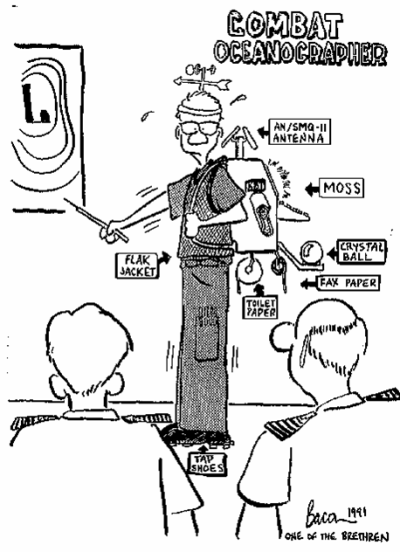Edit add: Maybe Nords will pipe up. IIRC his spouse was in the Navy weather bureau.
My spouse is a Navy-trained meteorologist and oceanographer, with master's degrees in both subjects. (For you Navy & Air Force vets: "METOC".) She was also the Joint Typhoon Warning Center Operations Officer for three years, which is almost as thankless a task as being a submarine operations officer.
I've been learning from her for over 30 years, and I'm still learning. I have learned that when she's worried about a weather pattern, then I'd better start worrying too. And if she says "Holy cow, look at the eye on that satellite image!" then I just pull out the hurricane checklist.
You are perhaps a victim of selective memory. As has been mentioned by other posters, you'll remember the mistakes far more clearly than all the days that they got it right. And you don't even know about all of the other locations where they also got it right.
My first recommendation: stop watching the TV station's meteorologist. Some of them aren't even certified meteorologists ("We're working on it!") and anyway they're just reading the National Weather Service forecast. They barely even bother to do their own forecasts, as if the station's lawyers would allow that potential liability.
Second, if you're worried about freezing your sewage lines then stop pushing the envelope on the season. Winterize as soon as you get an indication that you're heading for a freeze in another week or two, not just at the very last minute. You're simply putting your sewage lines at risk through overconfidence in an inexact science. The military spends bezillions of dollars on meteorologists and equipment but still takes prudent avoidance measures as early as possible.
The most accurate weather forecast is a concept called "persistence". "Persistence" says that tomorrow's weather is going to be the same as today's weather. That's all it says, but it's over 50% accurate all year 'round. (In Hawaii it's accurate for about 320 days out of 365.) Every professional NWS meteorologist curses persistence while secretly wishing that they were as good.
Finally, your best RV forecast is going to come from your local NWS office's website nearest to your RV. They're familiar with regional differences that could be worse than the national forecast.
NOAA is perpetually short of satellites because they're expensive-- and because they occasionally blow up on the launch pad or die an early death due to some space-related casualty. If there's no satellite coverage then you need aircraft overhead with sensors or someone on the ground launching weather balloons... otherwise the forecast really sucks.
Hurricane forecasting has improved tremendously in the last decade, due to both improved models and faster computing power. I forget the precise degree of the improvement but they're going out past five days, and the error cone is less than half of the size that it used to be. Of course the Hurricane Hunters help a lot, although even us submariners think that those aviators are nuts.
Tornado forecasting is very very hard, and if you have too many false alarms then people start ignoring the warnings. The best improvement in tornado forecasting has been Doppler radar (airports and meteorological stations) and faster warning systems (like text messages). In other words, it hasn't improved much in the last decade.
Oh, good, I've saved my Broadside cartoon of the "Combat METOC". Jeff Bacon was a Navy METOC but still managed to make O-6 rank...

